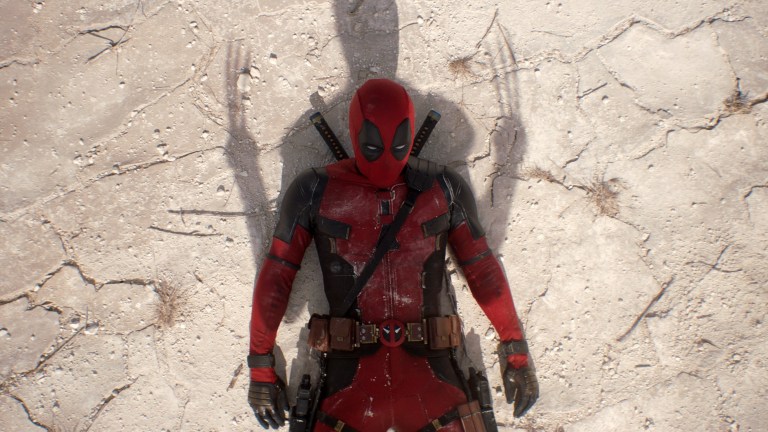Marvel Really Does Need to Become the Underdog Again After MCU Phase 4 and 5 Failures
Kevin Feige sees Marvel as an underdog. He's right, but is Deadpool & Wolverine an underdog movie?

“I’m much more comfortable being the underdog,” Kevin Feige recently told Empire.
If anyone has lost the right to call themselves an underdog, it’s got to be Feige, right? After all, he’s the head of Marvel Studios, the architect of a film franchise that dominated box offices for over a decade. He’s a key member of Disney’s corporate empire, a byword for a producer who knows how to please fans and executives alike.
Why in the world would he use that word to describe himself? Well, you don’t have to look much further than recent Marvel movie reviews and disappointing box office showings to find the answer. A degree of superhero fatigue has set in, and audiences no longer automatically line up for an increasingly unwieldy number of new Marvel entries.
Sure, some dedicated fans will disagree, but Feige clearly knows and accepts the truth. “You’d have to live under a rock not to know that the last few Marvel movies have failed to ignite the world in the way that so many did,” he told Empire.
To be sure, there’s more than a little bit of executive bluster in Feige’s claims. But, believe it or not, he’s earned it. After all, the Marvel Cinematic Universe began with an indie film. The 2008 movie Iron Man might have been distributed by Paramount Pictures, but it was produced by Marvel Studios.
Today, Marvel Studios and Marvel Comics are both owned by Disney, one of the most powerful corporations in the world. But the House of Mouse did not buy the House of Ideas until 2009. To fund their first self-produced film, then Marvel Studios took a $525 million loan from Merrill Lynch. For collateral, the company offered the full rights to several of its biggest characters, including Captain America and Black Panther.
In other words, they bet everything on Iron Man. And that wasn’t the only gamble. Everyone from Re-Animator director Stuart Gordon to star Tom Cruise had tried to make an Iron Movie in the past, but the company finally turned to Jon Favreau. While we all know Favreau for his work on big-budget Marvel, Star Wars, and Disney films, at the time he was an indie director whose biggest hit was the holiday comedy Elf.
Then, Marvel hired Robert Downey Jr. to play Tony Stark, a one-time promising rising star brought low by his substance abuse problems. Now Downey was clean and ready to prove himself, but no insurance company would back a project with him in the lead. On an even more shocking note, Downey and Favreau immediately threw out most of the dialogue for the script, letting the actors ad-lib instead.
Obviously, it paid off. Downey and Gwyneth Paltrow charmed fans with their screwball banter, the movie had a human heart that wasn’t overshadowed by its rock ’em sock ’em ending, and the Avengers tease at the end left viewers excited, not exhausted.
That’s the type of attitude that Feige hopes to recreate now that the MCU has come down from its 2010s highs. Co-president of Marvel Studios Louis D’Esposito agrees with Feige’s position. “It’s been a rough time,” he admitted to Empire, before taking a more positive stance on the state of the MCU. “If we just stayed on top, that would have been the worst thing that could have happened to us. We took a little hit, we’re coming back strong.”
For D’Esposito, that coming back strong means pairing down Marvel’s output, something that Disney CEO Bob Iger has talked about quite a few times since he took back the big chair. “Maybe when you do too much, you dilute yourself a little bit,” D’Esposito said, echoing Iger. “We’re not going to do that anymore. We learned our lesson. Maybe two to three films a year and one or two shows, as opposed to doing four films and four shows.”
Of course, that’s easier said than done, as Marvel has several projects already in production, including the TV series Agatha and the movie Captain America: Brave New World, and should not follow the lead of its rival Warner Bros. and shelve these entries. But even if we won’t see the pared-down execution for a few more years, it’s clear that Marvel wants to cut down on output, which hopefully means more time to improve story and special effects.
In the meantime, Marvel is positioning itself as a rough-and-tumble outsider again, particularly while promoting its sole cinematic release of this year, Deadpool & Wolverine. “It’s nice to be able to rally behind one feature project this year,” said Feige. “We do come along at an interesting time. And we are decidedly something different.”
Feige’s saying the right things. And, without question, the first few trailers for Deadpool & Wolverine have generated a lot of interest, helped along by the excellent cartoon series X-Men ’97.
Then again, “different” and “underdog” seem to describe Deadpool & Wolverine as poorly as they do Feige himself. Ryan Reynolds may smirk like a very naughty boy when he looks at the camera after quipping about pegging, but the fact that he does it during a Super Bowl trailer in a Disney movie proves that he’s no outsider. And as much as we all like seeing Hugh Jackman in full Wolverine costume, the return of his Logan, alongside a bunch of other faces from pre-MCU movies, is the exact opposite of different.
Feige’s right about the underdog mentality. That perspective allowed them to make Iron Man into an engaging and exciting film. But if Deadpool & Wolverine is nothing more than self-satisfied in-jokes, empty edginess, and multiverse madness, then it won’t be the scrappy up-and-comer that the studio needs.
You can check out the full schedule of upcoming Marvel movies and TV series here.
